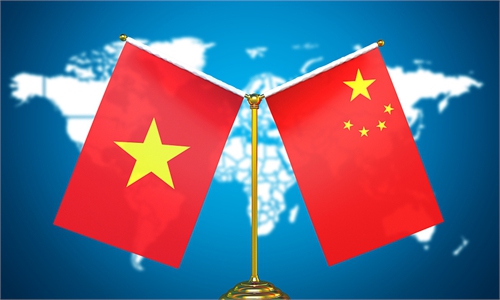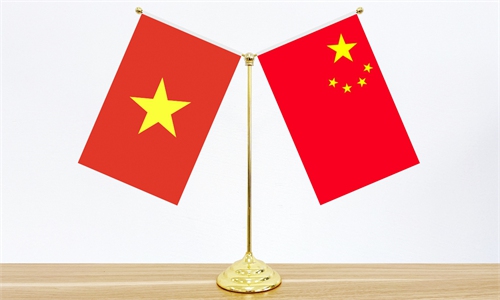China and Vietnam have national advantages to deepen pragmatic cooperation; vast potential to tap in new energy, digital economy
Similar development stages, geographic proximity build solid foundation

A view of Hanoi, capital of Vietnam Photo: VCG
This year marks the 15th anniversary of the comprehensive strategic cooperative partnership between China and Vietnam. Over the years, China-Vietnam economic and trade cooperation has witnessed a continued increase, becoming a new highlight of bilateral relations.
Chinese experts said that the China-Vietnam comprehensive strategic cooperative partnership may be taken to a new level soon, with breakthroughs to be made in economic and trade relations and great cooperation potential to be tapped in areas including new energy, the digital economy and infrastructure.
"There are national advantages for the two countries to deepen pragmatic cooperation, thanks to their similar development stages, geographic proximity and complementary industrial advantages," Zhuang Guotu, head of Xiamen University's Southeast Asian Studies Center, told the Global Times on Monday.
While labor costs in Vietnam are relatively lower than in China's coastal areas, China has advantages in technology and management experience, Zhuang said.
Connected by mountains and rivers, the two close neighbors' smooth land and sea shipment facilities have created great convenience for cross-border trade, investment and people-to-people exchanges, he said.
Most important, China and Vietnam are both socialist countries led by communist parties, and they can make long-term and stable cooperation plans, Zhuang said.
Bilateral economic and trade cooperation between China and Vietnam has yielded fruitful results over the past 15 years. China has remained Vietnam's biggest trading partner for years, while Vietnam has been China's biggest trading partner in the Association of Southeast Asian Nations (ASEAN). Bilateral trade surpassed $234.9 billion in 2022 from $2.4 billion in 2000, according to media reports.
Since Vietnamese durians officially entered the Chinese market in September 2022, the revenue of related enterprises and durian planting areas in Vietnam has greatly improved, benefitting more than 100,000 local farmers.
The China-Vietnam Trade and Economic Cooperation Forum was held in Beijing in June, attracting about 400 representatives from the two countries, including officials and entrepreneurs.
Hong Tianzhu, chairman of Chinese textile firm Texhong Textile Group, told reporters at the forum that the company would continue to invest in industry chains in Vietnam and contribute more to the development of China-Vietnam economic and trade cooperation.
In recent years, Chinese enterprises' investment in Vietnam has shown notable growth, playing an active role in driving up Vietnam's development. Between January and October, China's direct foreign investment in Vietnam reached $1.76 billion and covered sectors including advanced technology, telecommunications and green development, according to media reports.
"Economic and trade cooperation has increasingly become a new ballast stone of China-Vietnam relations," Zhao Gancheng, a research fellow from the Shanghai Institute for International Studies, told the Global Times on Monday.
One important reason for the smooth development of China-Vietnam relations is that the Southeast Asian country considers its relations with China from the perspective of its own interests, no matter what the US does to court it, Zhao said.
Zhao said that there will be breakthroughs in bilateral economic and trade cooperation during the meeting of the leaders of the two countries this week.
The two countries are expected to promote economic and trade cooperation under the framework of the Regional Comprehensive Economic Partnership and the China-ASEAN free trade agreement. The accelerated docking between the Belt and Road Initiative and Vietnam's "Two Corridors and One Circle" plan will provide a solid foundation in this regard, analysts said.
"It has come to a critical point to take the China-Vietnam comprehensive strategic cooperative partnership to a new level," Zhuang said. There is enormous potential for the development of economic and trade cooperation in various sectors including new energy, the digital economy and infrastructure, he said, urging more efforts to strengthen people-to-people bonds.


